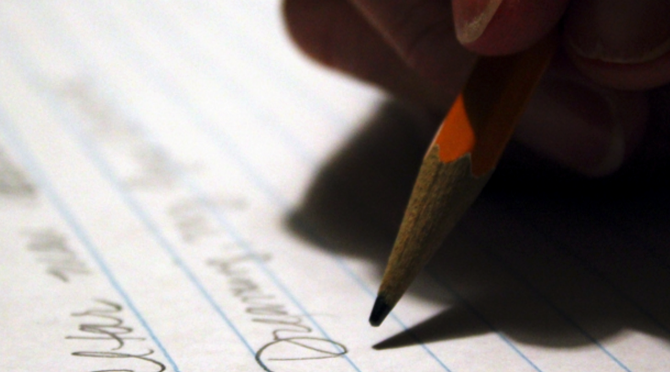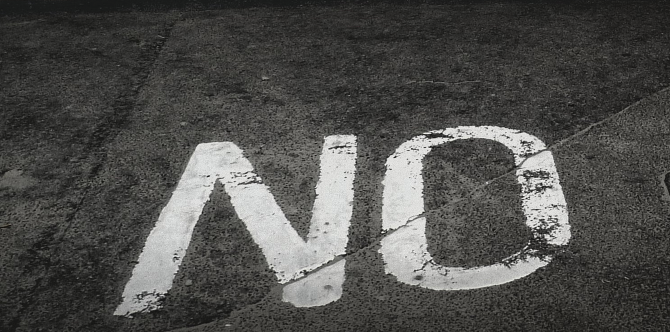The start of a new year is the perfect time to set yourself some goals, attempt to quit some bad habits, and try to become a healthier person.
Most of us struggle to come up with some less commonplace New Year's resolutions. There are some overlooked habits that could be easier to achieve or make a bigger dent in the theme of our lives.
Unfortunately, almost 80 percent of people fail to stick to their resolutions. So if you're going to try again this year, at least make a resolution that's worthwhile.
So, let's turn to the wise and famous for some inspiration. They got some of it right and left behind priceless prescriptions for us. Below, you will meet the likes of Virginia Woolf, Susan Sontag, Mark Twain, and Tim Ferriss among others.
1. Keep a Journal
Between 1915 and 1941, Virginia Woolf tenaciously kept a journal, leaving behind 26 handwritten volumes for us to pore over.
An entry in one of those volumes explained Woolf's dedication to the habit of journaling:
The habit of writing thus for my own eye only is good practice... I should like [my journal] to resemble some deep old desk, or capacious hold-all, in which one flings a mass of odds and ends without looking them through. I should like to come back, after a year or two, and find that the collection had sorted itself and refined itself.
Using a journal as a mind dump like this is something best-selling author Tim Ferriss falls back on "morning pages" to help clear his mind. And Susan Sontag must have seen the benefits too, setting herself a resolution to "write in the Notebook every day."
Moreover, numerous studies have shown journaling to have other productivity boosting benefits. These range from stress reduction and increased self-discipline, to less time off work, and improved problem solving skills.
To get started, there's nothing better than a pen and paper. But if you're looking for an app, 5 Minute Journal, and Day One are both worth checking out.
2. Say "No" More
While many people choose saying Yes to more things as a New Year's Resolution, Warren Buffet has a different take: "The difference between successful people and unsuccessful people is that really successful people say no to almost everything."
Socrates agreed, warning us to "beware the barrenness of a busy life." Anyone who's known for routinely saying Yes to requests will understand this.
By saying no more often, Adam Grant, Wharton School professor, explains that you have far more opportunity to "say Yes when it matters most". Investor and founder of CD-Baby, Derek Sivers, follows a simple rule to help him make decisions:
If you're not saying "HELL YEAH!" about something, say "No"... When you say No to most things, you leave room in your life to really throw yourself completely into that rare thing that makes you say "HELL YEAH!"
3. Improve Your Self Discipline
We've written before about why self-discipline trumps motivation every time. So, if you're planning to get much done in the coming year, self-discipline is a skill you should seriously consider cultivating.
An essay by Zbyhnev says, the problem with motivation is the belief that "a particular mental or emotional state is necessary to complete a task... At its core, chasing motivation is insistence on the fantasy that we should only be doing things we feel like doing."
Relying on motivation is, in other words, a recipe for disaster. Relying on self-discipline, however, is a recipe for success.
To quote former U.S. President Harry Truman, "In reading the lives of great men, I found that the first victory they won was over themselves... self-discipline with all of them came first."
This is a sentiment echoed by legendary creatives around the world. E.B. White said, "A writer who waits for ideal conditions under which to work will die without putting a word to paper." Tchaikovsky explained that "a self-respecting artist must not fold his hands on the pretext that he is not in the mood."
The list could go on.
To help cultivate this kind of self-discipline, you'll have to learn how to better manage your time, and put effort into developing new habits. But when you no longer need to rely on motivation to get things done, this might be the best resolution you ever made.
4. Stop Complaining
If only being more positive was as simple as one of Woodie Guthrie's resolutions: be glad. Unfortunately, things aren't quite that simple. But at least becoming less of a pessimist is possible.
With some metacognitive awareness training, it is possible to better repress negative thoughts in favor of positive ones. As the Buddha said, "We are shaped by our thoughts; we become what we think." And what's more, while our actions are shaped by our thoughts, our thoughts are very much shaped by our words.
Over the past few years, there's been a flurry of excitement around the 21-day No-Complaint challenge. Popularized by Kansas City minister Will Bowen, the challenge is to go 21 consecutive days without complaining.
You can buy a bracelet to help with this. Every time you complain, move the bracelet to the other wrist. Or you could just use an app like Coach.me as a tracker. A more specialized app like Carp is also available for iOS.
By doing this, you'll not just notice how many of our daily interactions are tainted by complaining, you'll also condition yourself to catch a complaint before uttering a negative word. As Tim Ferriss said after he completed the challenge, "It all made perfect sense. Fix the words and you fix the thoughts."
This echoes Henry Thoreau's idea that "it's not what you look at that matters, it's what you see." Trying something like the 21-day No Complaint challenge will make you adept at controlling how you see the world.
5. Go on an Adventure
When you've been stuck in one place for too long, consider this quote from Mark Twain: "Broad, wholesome, charitable views of men and things cannot be acquired by vegetating in one little corner of the earth all of one's lifetime."
More than simply a vacation, an adventure is specifically something that's "unusual and exciting". As quoted in the video above, "Adventure is about stepping outside of your comfort zone and ensuring every new day is as unpredictable as the last."
For some inspiration, there are plenty of travel blogs for you to drool over. And luckily, adventures can be had on any budget.
If you don't want anything too strenuous, become a Flâneur (an idle wanderer) for the day. If you've only got a weekend free, go on one of these micro-adventures. For something more hard-core, go off-roading, join an expedition, stay with a local, travel with a mission, or just learn something new.
After all, "The world is a book, and those who do not travel read only one page" (St. Augustine).
What's Your New Year's Resolution?
Find a New Year's resolution that's not quite so clichéd as lose weight or drink less. Perhaps these ideas will offer some inspiration. Or do you have of your own already planned out?
What New Year's Resolution will you be choosing? How did you decide on that particular one?
Image Credit: Oleksandra Naumenko via Shutterstock.com





